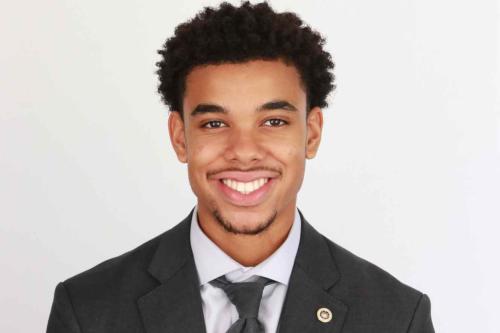WASHINGTON – Howard University recently kicked off its $30.8 million, seven-year partnership with the District of Columbia, which creates a series of new community health care initiatives devoted to tackling major health problems confronting city residents.
Through the partnership, Howard University is implementing five new Centers of Excellence individually devoted to behavioral health, oral health, sickle cell disease, trauma and violence prevention, and women’s health.
“D.C. has lots of health problems that are not unique to us but affect us; and Howard University has lots of assets, including in medicine, dentistry, nursing and allied health, and pharmacy,” said Thomas Farley, MD, MPH, senior deputy director at DC Health. “This initiative is about taking our assets and using them to reduce our problems.”
At a kickoff event on August 8, Farley and other city health officials toured of the Centers of Excellence headquarters on the main campus on Georgia Avenue. In addition, the Howard physicians selected to lead each center shared details on their plans and updates on how the partnership is taking shape.
Importantly, in women’s health, Guoyang Luo, MD, professor and chairman of the Department of Obstetrics and Gynecology in the College of Medicine, is directing the center of excellence program on women’s health. “While there are many areas of women’s health that need to be addressed, the city’s maternal and infant mortality rate is among the highest in the nation, especially for African American women and infants,” Luo said.
Luo said plans include hiring community doulas and community social workers as part of the integrated comprehensive perinatal care model to increase adherence and compliance of perinatal care, especially for those with high-risk comorbidities and history of poor pregnancy outcomes. He said up to 50% of maternal patients in the city, especially patients from Wards 7 and 8, are not initiating prenatal care early in the first trimester. For physicians, this is a critical time to assess pregnancy risk factors and initiate preventative interventions to lower pregnancy complications.
Luo said the doulas will conduct home visiting services for expectant mothers to assess their pregnancies, ensure adherence of prenatal care and treatment, provide labor support when patients desire, as well as support postpartum mothers and infants’ well-being. Doulas can also serve as liaisons between patients and health care providers. Additionally, community social workers will address social determinants of health and obstacles to perinatal care. These include housing stability and food security as well as neighborhood violence. The intention is to provide a stable and safe environment for pregnant mothers.
“Traditionally, the standard perinatal care has been disengaged with the community. But it doesn’t work, and that’s why we have poor maternal and infant outcomes in our community,” Luo said. “The center is meant to address these gaps and help us achieve better maternal and infant outcomes.”
In behavior health, Denise Scott, PhD, assistant professor in the College of Medicine’s Department of Pediatrics and Human Genetics, said the Centers of Excellence program would seek ways to expand mental health treatment capacity and delivery and increase access to culturally appropriate substance use disorder treatment. The center is also putting the focus on building collaborative community partnerships with community organizations and emphasis on early intervention and treatment.
Mallory Williams, MD, professor of surgery and chief of the Division of Trauma and Critical Care in the College of Medicine and Howard University Hospital, said partnership resources would be used to expand Howard University’s award-winning ENGAGE community violence prevention program.
“We want to touch them before a gunshot wound or a stab wound,” Williams said. “That’s going to take a lot of work and time in our community.”
James Taylor, MD, director of the Howard University Center for Sickle Cell Disease, said the initiative will help tackle the array of acute needs for sickle cell patients in the community. These include the lack of mental health resources, fragmentation of care, and excessive and expensive care in local hospital emergency rooms. The center will hire new medical staff, including physicians and nurse practitioners, to help manage patients, whose needs often go neglected. In addition, resources from the partnership will be used to help recruit medical students to focus sickle cell hematology as a career specialty.
In oral health, Tanya Greenfield, DDS, director of operations and strategy in the College of Dentistry, said the resources from the Centers of Excellence initiative will be used to establish round-the-clock urgent care dental services for D.C. residents, care that is currently an option for most city residents. Resources will also be used to expand geriatric services for the community, an area Howard dentistry students and faculty have long supported through community service work and campus clinics. Greenfield also said the college is planning to establish a new community advisory committee.
###
About Howard University
Founded in 1867, Howard University is a private, research university that is comprised of 14 schools and colleges. Students pursue more than 140 programs of study leading to undergraduate, graduate and professional degrees. The University operates with a commitment to Excellence in Truth and Service and has produced one Schwarzman Scholar, three Marshall Scholars, four Rhodes Scholars, 12 Truman Scholars, 25 Pickering Fellows and more than 165 Fulbright recipients. Howard also produces more on-campus African American Ph.D. recipients than any other university in the United States. For more information on Howard University, visit www.howard.edu.
Media Contact: Sholnn Freeman; sholnn.freeman@howard.edu




